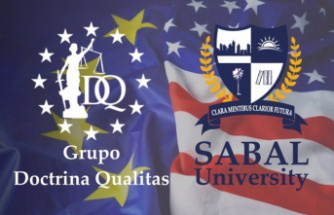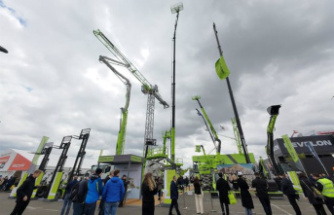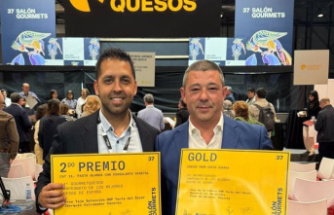President Donald Trump’s plan to potentially overhaul foreign-worker visas is causing uncertainty among Charlotte companies that rely on the programs to fill thousands of technology jobs and other skilled positions.
Workers on the visas are all over Charlotte, many employed by outsourcing companies based in India and elsewhere that provide information technology and other services. Local companies hire the workers for many other roles as well, from physicians and professors to consultants and engineers.
It’s not clear how the Trump administration will ultimately change the worker-visa programs. Late last month, White House press secretary Sean Spicer said such visas are part of a larger immigration reform effort Trump will “continue to talk about.”
A draft of an executive order for Trump’s consideration does not lay out specifics, saying only that the program must prioritize American workers. The order cites a need to protect “our forgotten working people,” echoing one of Trump’s most potent campaign themes.
Federal visa certifications were granted for 12,771 positions sought by Charlotte-area businesses in 2015, according to the latest annual tally by the Department of Labor. That’s more than double the figure from five years earlier – and bigger than the entire workforce of some of Charlotte’s largest employers.
One of the visas cited in the draft executive order, the H-1B, is especially widespread in Charlotte, which ranked 14th nationwide in 2015 for number of those visa jobs given federal certification.
[In Charlotte, foreign workers replace Americans in tech roles]
In Charlotte, some of the biggest users of the program include technology outsourcing companies such as Cognizant Technology Solutions and consulting firms like Deloitte. But they also include familiar names from a range of industries, including Bank of America and Wells Fargo, appliance-maker Electrolux, hotel chain Extended Stay America and home-improvement retailer Lowe’s.
Experts say new restrictions on visa programs could cost Charlotte jobs, as some firms that employ foreign workers would likely ship those tasks overseas to keep costs low. That could ripple through the economy in Charlotte, where visa workers live and spend money.
It could also reverberate in universities, which use the visas to bring in faculty from overseas.
“We are worried,” said Tarek Elshayeb, director of the International Student and Scholar Office at UNC Charlotte, which he estimates has on average 30 to 40 professors and other faculty on H-1Bs in any given year.
“The worry is the institution’s ability to have the most competitive search for teaching and research positions,” he said. “No doubt international faculty or researchers ... give our students exposure to different cultures, which helps them to be globally competitive.”
[Related: Millions of N.C. incentives go to companies using visa workers]
Visa supporters cite a shortage of science, technology, engineering and mathematics, or STEM, talent in the U.S. as a key reason for their need. But critics contend that such a shortage is bogus. They point to examples of businesses laying off American workers who then had to train foreign replacements willing to work for less money. Such stories have made American tech workers in Charlotte and elsewhere fear for their jobs.
The draft executive order directs the secretary of Homeland Security to consider ways to make the process for allocating H-1B visas “more efficient” and to ensure “beneficiaries of the program are the best and the brightest.” It doesn’t mention altering the cap of 85,000 visas the government awards annually, or changing the minimum pay for visa workers – changes that experts say would require congressional action.
Nationwide, demand from employers is so high the federal government conducts an annual lottery to award the visas.
In an email to the Observer, a White House official said Trump “has expressed that a merit-based visa system is important for a healthy economy.” The statement offered no further details.
Among Charlotte’s biggest visa users: outsourcing companies known for providing information technology services to other firms. Those companies, like India-based Infosys, often hire Indian workers who live in the Charlotte region and work in uptown’s office towers.
Because of their outsized reliance on visas, such firms potentially stand to lose the most from limitations on the program.
Nimish Bhatt, president of the Carolinas Asian-American Chamber of Commerce, estimates Charlotte employs at least 15,000 workers on H-1B visas. Those employees help the region’s economy, spending money at local businesses, occupying apartment complexes, using Charlotte’s airport – even attending NASCAR races, he said.
“All your uptown restaurants, you can see are full in the lunch hours, and that is a big business,” Bhatt said. “If you go to the EpiCentre Thursday, Friday, Saturday, you will see all foreign (H-1B) workers there during the evening hours.”
Bhatt said tech companies in Charlotte that have been planning to make investments are holding off for now amid the uncertainty.
George Miller, a Charlotte immigration attorney whose firm DozierMiller helps businesses file visa paperwork, pointed to the companies on the Charlotte Chamber’s website. “The vast majority of the list is H-1B reliant,” he said. “It is a significant part of the workforce.”
Miller said clients have been calling with questions about how Trump’s potential changes to visas might affect them: “They’re very concerned.”
He said the Trump administration’s actions involving visas could “definitely” push some Charlotte employers to move those jobs overseas.
“The banking industry, for one, may be forced to outsource that work outside the United States,” he said. “If Americans aren’t available to do it, aren’t trained to do it, they have no choice.”
In a statement, Mooresville-based Lowe’s noted that “as an international company with more than 285,000 employees, we have a very small number of employees in the U.S. with H-1B visas.” The company said it is committed to a diverse and inclusive work environment and continues “to monitor proposed changes to H-1B visas and evaluate the potential impacts on our workforce.”
India-based software company Persistent Systems, which employs H-1B workers in Charlotte, said in a statement the firm’s “ability to deliver services to our customers is not dependent on the use of H1-B visas” and that it is “always anticipating and adapting to changes in the business and regulatory environment.”
Sacramento-based McClatchy, publisher of the Observer, outsources some technology functions to India-based Wipro.
Other companies contacted for this story wouldn’t comment.
Ron Hira, a professor at Howard University in Washington, D.C., who studies visa use, said that while Congress must make some rule changes, there are things Trump can do on his own.
For one, the administration could ensure wages being paid to H-1B workers comply with the law by looking at whether firms are incorrectly specifying skill levels to underpay the workers.
“The (Department of Labor) has never bothered investigating mis-specification of the wage levels,” Hira said. Such an investigation would probably find examples of such practices, he said.
The administration might also be able to change the random H-1B lottery to a process that prioritizes the “best and brightest,” Hira said. “There’s nothing in (federal law) that requires a random lottery,” he said.
Terry Chapman, who said he lost his IT job in Davidson in 2009 to an Indian outsourcing firm, is among supporters of more restrictions on U.S. visa programs.
Chapman, who had been working for an American contractor, said the firm that was using that contractor switched to an India-based contractor. Chapman said he was given a job with the Indian company, which told him to train members of its foreign workforce.
“They put some software on my computer to log all my keystrokes,” he said. “They were supposed to sit right behind you in your cubicle and watch what you did, take notes,” he said.
He said he refused to teach the workers: “I knew that if I did train them I was going to lose my job.”
Chapman said he did lose his job about a year later, when the Indian company did not renew his contract.
“I was very upset,” he said. “The argument that H-1B workers are needed because there are no technical workers, the skills can’t be filled, those jobs can’t be filled by American technical workers is false. I was available.”
One visa worker from New Delhi, taking a smoke break in uptown Tuesday afternoon, said he’s concerned about Trump changing visa rules.
“It’s going to worry the entire IT industry, all the IT companies, from India,” he said. “Because a significant part of their revenue comes from the U.S. market.”
The worker, who has been in Charlotte for five years, said he develops business processes for a bank he wouldn’t name. Working in the U.S. offers him a chance to earn more than he could in India, but he believes visa workers are paid at least 20 to 30 percent less than Americans would be paid for the same jobs.
“I think they would pay a lot more for an American,” he said.
He said the potential for new restrictions from Trump is raising questions about what that will mean for workers and companies.
“Everybody is trying to assess how it’s going to impact them and how to mitigate the impact,” he said. “We are trying to figure out backup plans.”
Deon Roberts: 704-358-5248, @DeonERoberts
Our editors found this article on this site using Google and regenerated it for our readers.













